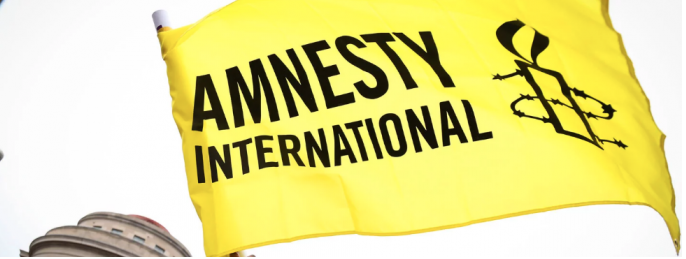Reacting to the mounting reports of searches and arrests in Russia of prominent political and civil activists associated with imprisoned Aleksei Navalny, Natalia Zviagina, Amnesty International’s Moscow Office Director, said:
“The crackdown on dissent in Russia has become increasingly brutal – and desperate – even compared to vicious reprisals in recent years. The authorities appear shamelessly bent on violating human rights by silencing their critics. In the last few days, the authorities have detained a young mother, raided the home of a prominent journalist’s elderly parents, and opened criminal prosecutions on dubious grounds, such as the violation of sanitary regulations by demonstrators.
“This wave of reprisals is obviously aimed at repressing growing popular dissent in Russia. It is a cowardly attempt to prevent further planned peaceful protests against the prosecution of prisoner of conscience Aleksei Navalny, and the allegations of top-level corruption in Russia which he unearthed.”
“The persecution of peaceful protesters must stop immediately, and Russian citizens must be able to exercise their rights to freedom of peaceful assembly and expression, on 31 January or whenever they choose – these are fundamental rights.”
Background
On the afternoon of 27 January, at least 18 raids were carried out at homes and offices of leading opposition activists, journalists and government critics in Moscow. The security forces stormed apartments where the wife of prisoner of conscience Aleksei Navalny, Yulia Navalnaya, and his brother Oleg live. Simultaneously, they conducted a raid on the Anti-Corruption Foundation office and studio of Navalny Live, the opposition activist’s popular YouTube channel.
At the same time a number of raids were conducted on the homes of Anastasia Vasilyeva, the head of the Alliance of Doctors union, Maria Alyokhina of the Pussy Riot punk band, the parents of Sergei Smirnov, editor-in-chief of Mediazona, an independent media outlet, among others.
These actions were taken under the pretext of investigating a criminal case based on Article 236 of Russia’s Criminal Code (violation of sanitary and epidemiological standards, which inadvertently entailed or threatened to result in a mass illness or poisoning of people). Those targeted include organizers and participants of protests that were violently dispersed by the authorities on Saturday 23 January. If found guilty, they face up to two years’ imprisonment.
This is only one of dozens of criminal cases that have already been opened in Russia against political activists, on contentious grounds – such as road blockages, violation of COVID-19 quarantine restrictions, damage to state property, and the use of violence against police officers. Just today a new criminal case under Article 151.2 (involvement of minors in actions endangering their life) was opened against the head of Alexey Navalny’s movement regional offices, Leonid Volkov.





















